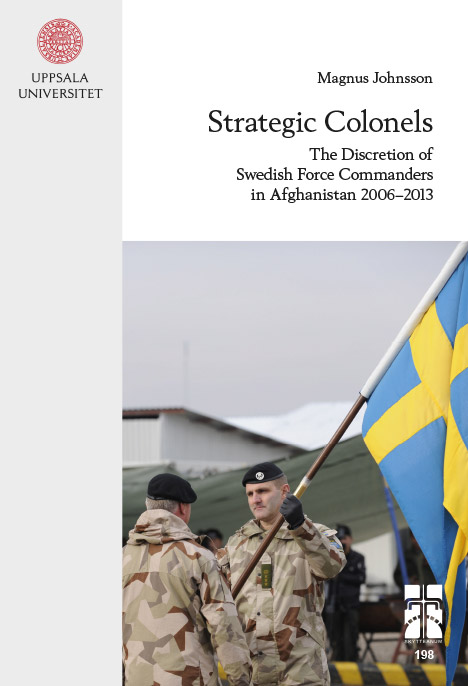This dissertation examines the role of military officers as policy implementers by investigating the discretion of Swedish force commanders in the multinational military campaign in Afghanistan between 2006 and 2013. By developing an analytical framework that takes both an outside-in and an inside-out perspective, and that encompasses both the objective implications that structural factors project on force commanders as well as their subjective perceptions of those structural factors, and applying that framework to a range of official documents as well as unique interview data, the thesis describes the discretion that force commanders have had in interpreting, choosing and shaping their mission and concept of operations.
The findings show that Swedish force commanders in the Afghanistan campaign have had considerable discretion in interpreting and framing the principal’s overarching mission, the mission of their own force, as well as their force’s concept of operations. Their discretion can be understood as a combination of structurally induced freedom to make choices, the force commanders’ perceptions of that freedom and their inclination to use it.
Circumstances regarding structural factors such as duality of command, passive authority of superiors, non-specific tasks and ambiguous implications of allocated resources has created this discretion and rendered force commanders disproportionately influential in the policy implementation process. Although this influence can be regarded as a manifestation of modern management ideals such as Auftragstaktik and mission command in the military, or management by objectives in government and business, it can also be regarded as a downwards passing of the buck where strategic implementation decisions trickle down to the level of force commanders in the field, making them “strategic colonels”.


